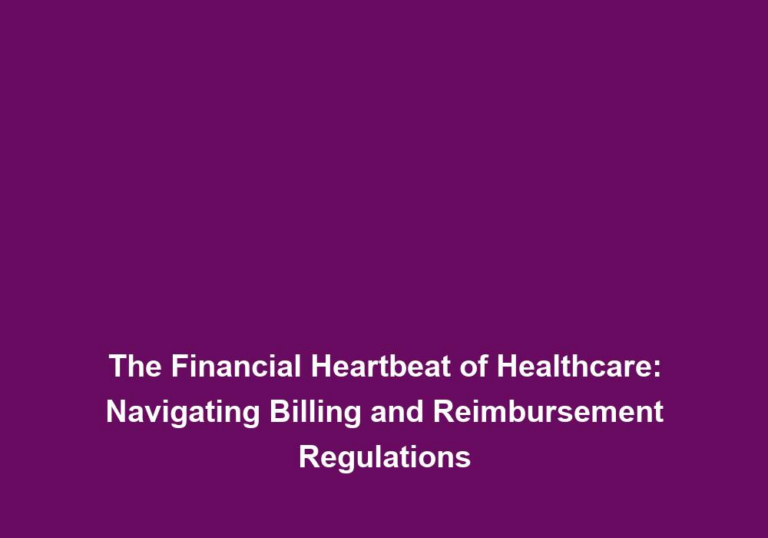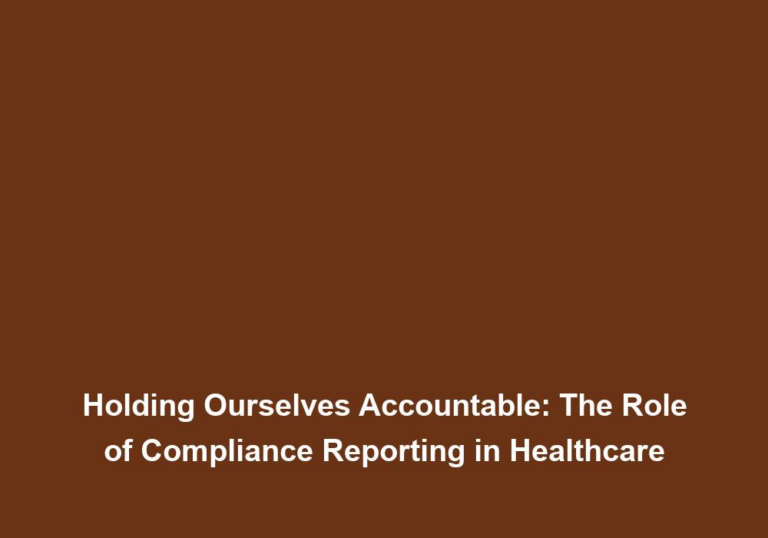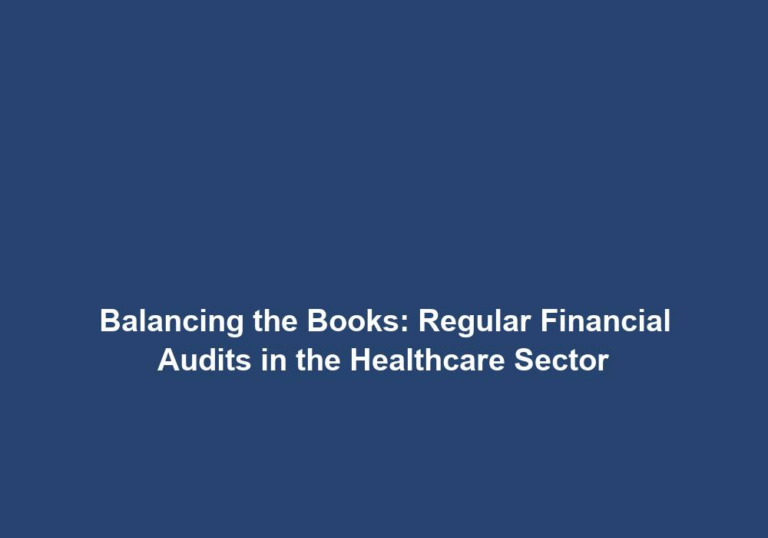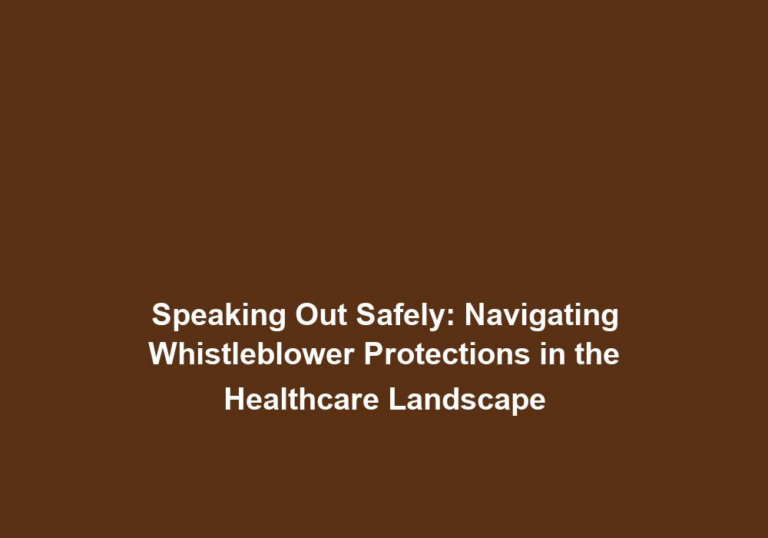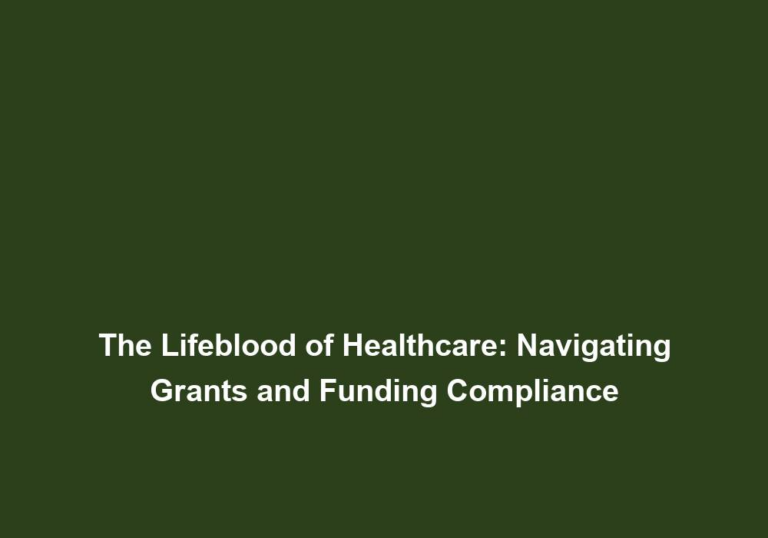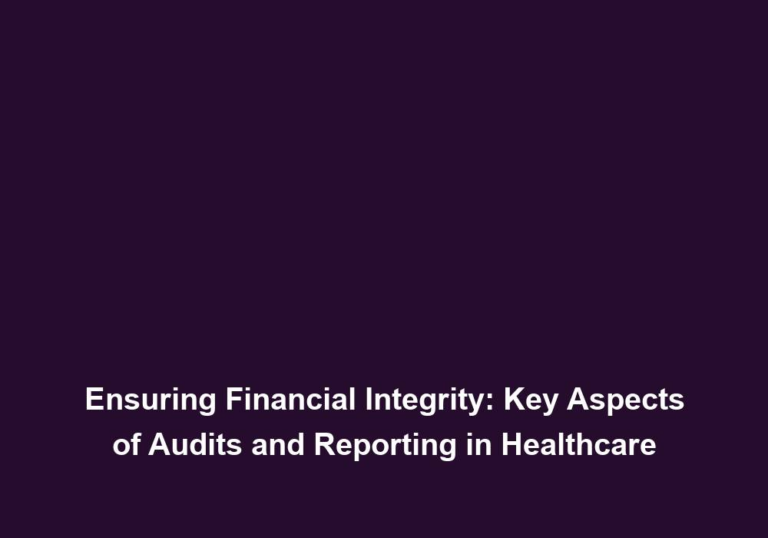From Application to Action: Ensuring Compliance in Healthcare Grants and Funding
In the ever-evolving landscape of healthcare, grants and funding play a crucial role in supporting research, innovation, and the delivery of quality patient care. However, the acquisition and utilization of grants and funding come with a responsibility to ensure compliance with various regulations, guidelines, and ethical considerations. This article delves into the intricacies of compliance in healthcare grants and funding, providing a comprehensive guide to navigate the application process and ensure adherence to regulatory frameworks.
Understanding the Importance of Compliance
Compliance in healthcare grants and funding serves multiple purposes. Firstly, it promotes transparency and accountability, ensuring that funds are utilized appropriately and in alignment with the intended objectives. This transparency builds trust among stakeholders, including funding agencies, investors, and the general public. By adhering to compliance regulations, healthcare organizations protect their reputation and demonstrate their commitment to responsible financial management.
Secondly, compliance safeguards against financial fraud, waste, and abuse. By following regulations and guidelines, healthcare organizations mitigate the risk of mismanagement or misuse of funds. This not only protects the financial integrity of the organization but also ensures that resources are used to their fullest potential, benefiting patients and advancing healthcare.
Lastly, adherence to compliance regulations is essential for maintaining the ethical standards of healthcare organizations. By following ethical guidelines and regulations, healthcare providers prioritize patient safety, privacy, and dignity. Compliance ensures that research involving human subjects is conducted ethically and that the rights and well-being of participants are protected.
Key Compliance Regulations and Guidelines
To achieve compliance in healthcare grants and funding, it is essential to familiarize oneself with the relevant regulations and guidelines. Some of the key regulatory frameworks include:
-
HIPAA (Health Insurance Portability and Accountability Act): HIPAA sets standards for protecting patients’ sensitive health information and ensures its confidentiality, integrity, and availability. Compliance with HIPAA regulations is critical to safeguard patient privacy and maintain the trust of individuals seeking healthcare services.
-
Stark Law and Anti-Kickback Statute: These laws aim to prevent conflicts of interest and prohibit offering, soliciting, or receiving kickbacks, bribes, or inducements in exchange for referrals or the provision of healthcare services. Compliance with these laws ensures that healthcare decisions are based on the best interests of patients rather than personal gain.
-
Medicare and Medicaid regulations: These regulations govern the administration of federal healthcare programs and specify rules for reimbursement, billing, and documentation. Compliance with Medicare and Medicaid regulations is crucial for healthcare organizations that receive funding from these programs, as non-compliance can result in financial penalties and exclusion from participation.
-
Good Clinical Practice (GCP): GCP guidelines ensure the ethical conduct of clinical trials by establishing standards for the design, conduct, monitoring, and reporting of research involving human subjects. Compliance with GCP guidelines protects the rights and well-being of participants and ensures the integrity of research data.
-
Code of Federal Regulations (CFR): The CFR encompasses a wide range of regulations applicable to healthcare grants and funding, covering areas such as research integrity, human subjects protection, financial management, and conflicts of interest. Compliance with CFR regulations is essential for healthcare organizations to maintain legal and ethical practices.
-
Institutional Review Board (IRB) requirements: IRBs review and approve research proposals involving human subjects, ensuring compliance with ethical standards and the protection of participants’ rights. Adhering to IRB requirements is crucial for healthcare organizations conducting research involving human subjects, as it demonstrates a commitment to ethical research practices.
The Application Process: Navigating Compliance Requirements
-
Identifying Funding Opportunities: Begin by identifying grants and funding programs aligned with the objectives of your healthcare organization or research project. Various online platforms and databases facilitate this search, providing comprehensive information about funding sources, eligibility criteria, and application deadlines. Consider exploring government grants, private foundations, and industry-sponsored funding opportunities.
-
Thoroughly Reviewing Application Guidelines: Each funding opportunity comes with specific application guidelines outlining the required documentation, project scope, budgetary considerations, and compliance requirements. Carefully review these guidelines to understand the expectations and tailor your application accordingly. Pay close attention to compliance-related requirements, such as data privacy, human subjects protection, and financial management.
-
Building a Strong Research Proposal: A well-structured research proposal should clearly articulate the significance of the project, its objectives, methodology, expected outcomes, and potential impact on patient care or healthcare systems. Ensure that your proposal addresses any compliance-related considerations, such as protection of human subjects, data privacy, and ethical considerations. Provide a detailed plan for compliance with applicable regulations and guidelines throughout the project.
-
Budget and Financial Management: Develop a detailed budget, accounting for all anticipated expenses and justifying the allocation of funds. Compliance in financial management includes accurate record-keeping, adherence to procurement guidelines, and appropriate use of funds in line with the approved budget. Establish internal controls and processes to ensure transparency and accountability in financial management.
-
Collaborations and Partnerships: In some cases, collaborating with other institutions or organizations may enhance your chances of securing funding and strengthen the overall project. However, ensure that any collaborations adhere to applicable regulations and do not violate anti-kickback or conflict of interest laws. Establish clear agreements and communication channels to ensure compliance and avoid potential ethical or legal conflicts.
-
Ethical Considerations: When conducting research involving human subjects, obtaining informed consent and protecting participants’ privacy and confidentiality are paramount. Ensure compliance with IRB requirements and any additional ethical guidelines specific to your research area. Develop protocols and procedures to ensure ethical conduct throughout the research process, including recruitment, data collection, and analysis.
Ensuring Ongoing Compliance and Reporting
Compliance is not a one-time obligation but an ongoing commitment throughout the duration of the grant or funding period. Here are some essential aspects to consider:
-
Internal Policies and Procedures: Establishing comprehensive internal policies and procedures that align with regulatory requirements ensures a systematic approach to compliance. Regularly review and update these policies to reflect any changes in regulations or guidelines. Provide training and resources to employees to ensure they are aware of and adhere to these policies.
-
Training and Education: Conduct regular training sessions to educate staff members about compliance regulations, ethical considerations, and proper documentation practices. This empowers employees to fulfill their responsibilities and minimizes the risk of inadvertent non-compliance. Document training sessions and maintain records of employee participation to demonstrate ongoing commitment to compliance education.
-
Monitoring and Auditing: Implement monitoring mechanisms to ensure adherence to compliance requirements. Regular internal audits help identify any gaps or areas of non-compliance, enabling timely corrective actions to be taken. Monitor financial transactions, research activities, and documentation practices to identify any potential compliance issues. Develop a reporting system for employees to report suspected non-compliance or ethical concerns.
-
Reporting and Documentation: Timely and accurate reporting is crucial to demonstrate compliance with grant or funding requirements. Maintain comprehensive documentation of all activities, expenses, and outcomes related to the funded project. Develop standardized templates and forms to ensure consistency and completeness in reporting. Regularly review and reconcile financial records to ensure accuracy and compliance with funding guidelines.
-
External Audits and Site Visits: Funding agencies may conduct external audits or site visits to verify compliance and assess the progress of the funded project. Be prepared to provide requested documentation and demonstrate adherence to the agreed-upon terms and conditions. Develop a system to organize and store all relevant documents and records for easy access during audits or site visits. Assign a designated point of contact to liaise with funding agencies and coordinate audit-related activities.
Conclusion
Compliance in healthcare grants and funding is a multifaceted endeavor that requires a thorough understanding of regulations, meticulous planning, and ongoing commitment. By navigating the application process with compliance in mind and establishing robust procedures, healthcare organizations can ensure the responsible utilization of funds, maintain transparency, and ultimately contribute to the advancement of healthcare systems and patient care. Adhering to compliance regulations protects the financial integrity of healthcare organizations, fosters trust among stakeholders, and upholds ethical standards in research and healthcare delivery.


